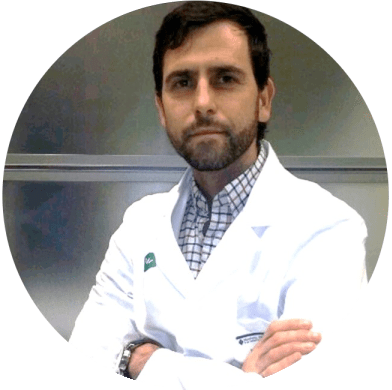
Marcos Bruna, MD, PhD
Hospital Universitario y Politécnico La Fe, València (Spain)
Monday May 20, 2019
Abstract
Transplantation could be defined as the process of taking an organ or tissue from somebody and implanting it in another part of the body or in another body. The history of transplantation is long and sometimes unsuccessful and difficult to understand, but year to year surgical technology, improvements in intensive care and different treatments have facilitated better results.
Spain has been a world leader in transplantation for the last 26 years, with near to 50 donors per million of population and, for instance, more than 5,000 organs transplanted during 2017. These numbers are achieved thanks principally to the generosity of donors and their families, and also to the capacity of the Spanish Transplantation System (STS) to cope with the emergency that the existence of a new donor represents.
The STS , also known as the “Spanish Model”, is built on top of a complex organization with great profitability. Team work, education, professional training, registration, reward and security are some of the keys to its success and export to other countries. But, above all, there is no success without donors: we need donors to give an opportunity to people waiting for a new organ to continue living. The characteristics of donors and recipients have changed during the last decades, and so the methods have evolved, too.
In order to maintain this model´s efficiency and its high survival rates, it is necessary to incorporate different approaches, treatments, advanced knowledge and new technologies like artificial intelligence in this medical practice. In this talk, we will review the latest advances in the last decades. We will also outline what are the challenges open, and how the ISCRAM community of researchers and practitioners can play a key role in the overall process. The future will be exciting because there are many opportunities and new ways to explore to optimize the results of transplantation programs.
About the speaker
Marcos Bruna is a Specialist Surgeon in the General and Digestive Surgery Service at the “Hospital Universitario y Politécnico La Fe”, in València since March 2019. Before joining this service, he worked in a similar position at the “Hospital General Universitario de València”, where he was also Coordinator of the Transplantation Unit (2013-2019). He holds a degree in Medicine (Universidad Autónoma de Madrid, 2003) and a Doctorate in Medicine (Universitat de València-Estudi General, 2015). In his work, he has applied advanced AI techniques to support the selection of the best recipient for an organ.
Marcos is member of several international associations, and has participated in numerous technical and administrative committees at local, national and international levels.